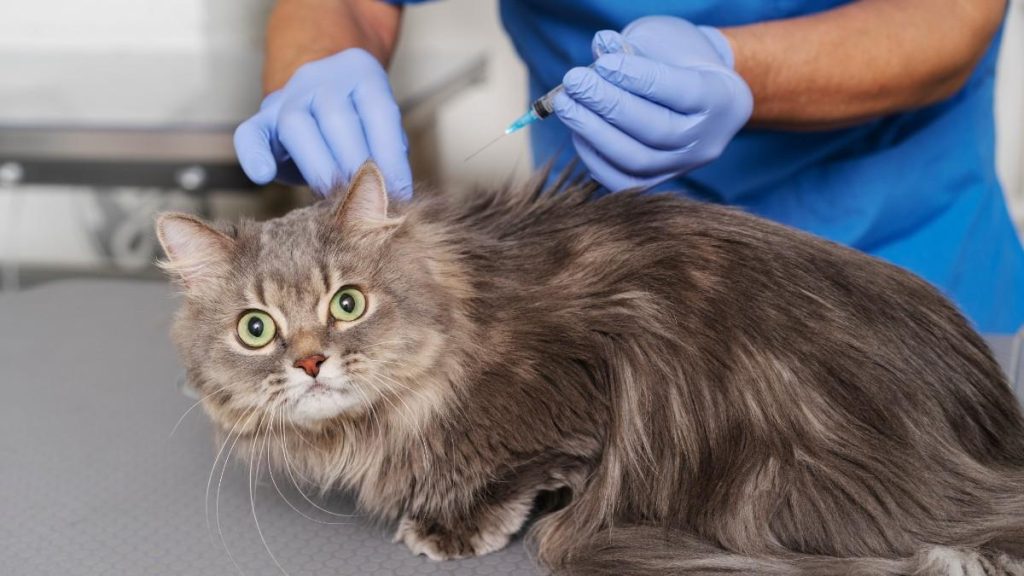Being a cat owner is a rewarding experience, but it also comes with great responsibility. Our feline friends rely on us to keep them healthy, happy, and safe throughout their lives. From their diet and grooming needs to regular vet checkups, every detail matters when it comes to ensuring their well-being. Ignoring even the smallest aspect of their care can lead to health issues that affect their quality of life.
As a loving cat parent, understanding the essentials of feline health is the first step to giving your pet the best possible care. Cats are independent creatures by nature, but they still need proper nutrition, preventive healthcare, mental stimulation, and a safe environment to thrive. By following a few simple yet crucial tips, you can make a huge difference in your cat’s overall health and happiness.
In this guide, we’ll share 10 vital health tips every cat owner should know, covering everything from feeding and hydration to vaccinations and grooming. Whether you’re a first-time cat parent or an experienced owner, these tips will help you build a stronger bond with your furry friend and keep them healthy for years to come.
Provide a Balanced Diet
A proper diet is the foundation of your cat’s health. Cats are obligate carnivores, meaning they require a diet rich in animal protein. Here’s how to ensure your cat gets the nutrition they need:
- Choose high-quality cat food: Look for brands that list meat as the first ingredient and avoid fillers like corn and soy.
- Avoid overfeeding: Obesity is a common issue in cats and can lead to diabetes, joint problems, and other health concerns.
- Provide fresh water: Always ensure your cat has access to clean water, especially if they eat dry food.
By following these dietary guidelines, you’ll be well on your way to implementing the Top 10 Essential Health Tips for Every Cat Owner.
Schedule Regular Vet Check-Ups
Routine veterinary visits are crucial for maintaining your cat’s health. Cats are experts at hiding illness, so regular check-ups can help catch potential issues early.
- Annual exams: Even if your cat seems healthy, annual vet visits are essential for preventative care.
- Vaccinations: Keep your cat up-to-date on core vaccines like rabies and feline distemper.
- Parasite prevention: Discuss flea, tick, and worm prevention with your vet.
Regular vet visits are a key part of the Top 10 Essential Health Tips for Every Cat Owner.
Keep Your Cat Active
Exercise is vital for your cat’s physical and mental health. Indoor cats, in particular, need stimulation to prevent boredom and obesity.
- Interactive toys: Feather wands, laser pointers, and puzzle toys can keep your cat engaged.
- Climbing spaces: Cat trees and shelves provide opportunities for climbing and exploration.
- Playtime: Dedicate at least 15-20 minutes daily to play with your cat.
Incorporating activity into your cat’s routine is another essential tip from the Top 10 Essential Health Tips for Every Cat Owner.
Maintain Proper Grooming
Grooming is more than just keeping your cat looking good—it’s also about their health.
- Brushing: Regular brushing helps prevent matting and reduces hairballs, especially in long-haired breeds.
- Nail trimming: Trim your cat’s nails every few weeks to prevent overgrowth and scratching issues.
- Dental care: Brush your cat’s teeth regularly or provide dental treats to prevent periodontal disease.
Grooming is a simple yet effective way to follow the Top 10 Essential Health Tips for Every Cat Owner.
Create a Safe Environment
Your home should be a safe and comfortable space for your cat.
- Toxic substances: Keep household cleaners, plants, and medications out of reach.
- Hide cords and small objects: These can be choking hazards or cause intestinal blockages if ingested.
- Provide hiding spots: Cats feel secure when they have cozy places to retreat.
A safe environment is a cornerstone of the Top 10 Essential Health Tips for Every Cat Owner.
Monitor Your Cat’s Behavior
Cats communicate through behavior, so paying attention to changes can help you spot health issues early.
- Litter box habits: Changes in frequency or consistency can indicate health problems.
- Appetite and thirst: Sudden changes in eating or drinking habits may signal illness.
- Activity levels: Lethargy or excessive restlessness can be a red flag.
Being observant is a critical aspect of the Top 10 Essential Health Tips for Every Cat Owner.
Spay or Neuter Your Cat
Spaying or neutering your cat has numerous health and behavioral benefits.
- Prevents unwanted litters: This helps reduce the number of homeless cats.
- Reduces health risks: Spaying lowers the risk of mammary tumors and uterine infections, while neutering prevents testicular cancer.
- Improves behavior: Neutered males are less likely to spray or roam.
Spaying or neutering is a vital part of the Top 10 Essential Health Tips for Every Cat Owner.
Keep Up with Preventative Care
Preventative care is the best way to ensure your cat’s long-term health.
- Flea and tick prevention: Use vet-recommended products to protect your cat.
- Heartworm prevention: Even indoor cats can be at risk.
- Regular deworming: Follow your vet’s advice on treating intestinal parasites.
Preventative care is a key component of the Top 10 Essential Health Tips for Every Cat Owner.
Provide Mental Stimulation
A bored cat can develop behavioral issues or become overweight.
- Rotate toys: Introduce new toys regularly to keep things interesting.
- Window perches: Allow your cat to watch birds and outdoor activity.
- Training: Teach your cat tricks or use clicker training for mental engagement.
Mental stimulation is an often-overlooked but essential tip in these Essential Health Tips for Every Cat Owner.
Show Love and Affection
Cats thrive on love and attention from their owners.
- Quality time: Spend time cuddling, petting, or simply being near your cat.
- Respect their boundaries: Let your cat come to you on their terms.
- Create a bond: Building trust and affection strengthens your relationship.
Showing love and affection is the heart of the Top 10 Essential Health Tips for Every Cat Owner.
Final Thoughts
Caring for a cat goes beyond providing food and a cozy bed, it’s about understanding their unique needs and ensuring their overall well-being. By following these ten vital health tips, you’re not only preventing common health issues but also creating a happier and healthier life for your feline friend. A little extra effort in their care routine can make a big difference in their longevity and quality of life.
Remember, every cat is different. Pay attention to your pet’s behavior, eating habits, and energy levels, as they can be early indicators of potential health concerns. Regular vet checkups, a balanced diet, and plenty of love and attention are the keys to keeping your cat in top shape.
At the end of the day, your cat depends on you for its health and happiness. By staying informed and proactive, you can give your furry companion the life they deserve, one filled with comfort, care, and countless purrs. A healthy cat is a happy cat, and that means a happier you too!
Frequently Asked Questions (FAQs)
Q1. How often should I take my cat to the vet?
It’s recommended to take your cat for a checkup at least once a year. Senior cats or those with health issues may need more frequent visits.
Q2. What is the best diet for a healthy cat?
Cats need a high-protein diet with essential nutrients like taurine. Consult your vet for recommendations on the best wet or dry food for your cat’s age and health.
Q3. How much water should my cat drink daily?
Cats typically need about 3.5–4.5 ounces of water per 5 pounds of body weight. Providing a water fountain can encourage better hydration.
Q4. Are regular vaccinations necessary for indoor cats?
Yes, even indoor cats need core vaccinations to protect them from common diseases and potential exposure through humans or other pets.
Q5. How do I know if my cat is overweight?
You should be able to feel your cat’s ribs without pressing too hard. If you can’t, your cat may be overweight and need a diet adjustment.
Q6. How often should I groom my cat?
Short-haired cats usually need grooming once a week, while long-haired breeds may require daily brushing to prevent mats and hairballs.
Q7. What signs indicate my cat might be sick?
Watch for changes in appetite, litter box habits, energy levels, or grooming behavior. Vomiting, diarrhea, or lethargy should be checked by a vet immediately.


